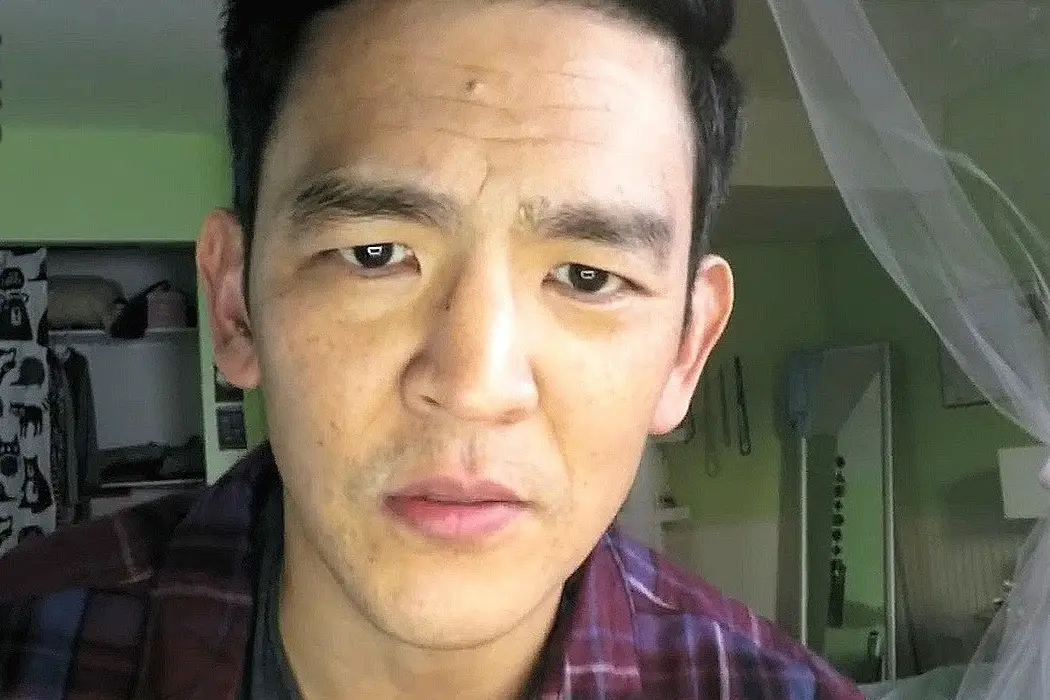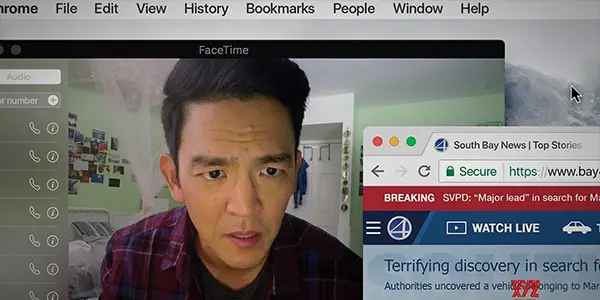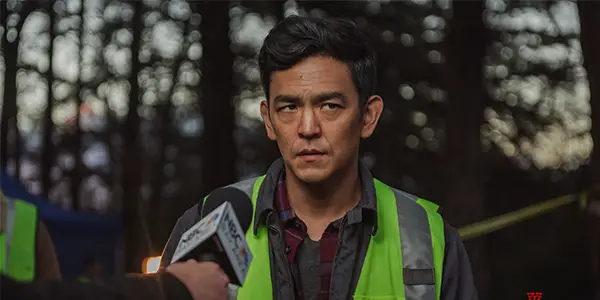SEARCHING: A Cautionary Tale Elevated By A Gimmick

Kevin L. Lee is an Asian-American critic, producer, screenwriter and…
In 2015, I defended a little horror film called Unfriended, for its ability to put a modernized computer spin on a tired teen slasher sub-genre. Despite the characters in that film being heavily underwritten, I praised the director’s aesthetic nonetheless – it was the first time where I saw potential in a film that completely takes place on a computer screen. I hoped for a film that would eventually use the computer as a medium to elevate some form of commentary about how we behave online vs. in real life. Because an all-computer-screen approach can be more than just a gimmick. It can elevate the film’s thematic focus.
That is exactly the case here with Searching, where writer and director Aneesh Chaganty uses the computer and smartphone point-of-view to bring forth a serious and disturbing truth about technology and social media – that we take so much on the Internet as face value.
The film stars John Cho as David Kim, who experiences any parent’s worst nightmare: His 16-year-old daughter Margot (Michelle La) has gone missing. As a local investigation is opened, David spends the rest of the film interacting with Detective Rosemary Vick (Debra Messing) while searching through his daughter’s laptop to look for potential clues to her whereabouts. But as he explores his daughter’s digital activity, he begins to question whether or not he really knew his daughter.
Visual Storytelling through the Computer Screen
Until you really see it in a film, you may be surprised just how relatable someone can be just by watching their digital activity. Chaganty demonstrates his sensibility to give several plot and character beats through visual storytelling. Too many times a film would just lay it on us through an exposition dump or a line of dialogue that is more directed at the audience than one of the characters. Here, we get to learn about the subtle dynamics between father and daughter by their browsing history and texting habits. More importantly, we learn about characters based on what they don’t write.

Throughout its runtime, Searching makes us reflect back at every single time we write a certain phrase to someone, but before we send it out, we go back and edit a word, if not delete the thing entirely and rewrite something completely different. This is a film that challenges who we are based on how we behave on something virtual like social media. Not only is social media a platform that generally shows only the positive side of every person, but it is also a place where almost nothing can be verified. How do you know you’re talking to the right person? How can you trust anybody?
Because the film is exploring these concepts narratively and thematically, Chaganty’s all-computer-screen approach never once comes across as a gimmick, but rather a tool to immerse the audience into David’s paranoia as well as shed light on how we communicate or fail to communicate. Subtle details like how David talks to Margot on Skype compared to how he talks in person are all important building blocks to form Chaganty’s cautionary message. We never get to see Cho as a “complete person” on screen – he’s always cropped by the FaceTime window or hidden behind text and visuals in a news broadcast. The experience, from our point-of-view, is both intimate and intrusive, almost as if we are given a scandalous opportunity to see this parent at his most vulnerable state.
A Hand-Holding Missing-Person Mystery
Although Searching is a strikingly effective cautionary tale about how we interact on the Internet, its main plot in the foreground is still a missing-person mystery. Chaganty and his editing team (Nick Johnson and Will Merrick) present a high-wire act from start to finish, giving just enough web browsing, typing, clicking, and ‘FaceTiming’ so that David’s investigation is always tense and never repetitive. The suspense is also greatly elevated by the exquisite sound design and musical score. The revelations land their appropriate shock effects, and Cho is more than up to the task of grounding these twists and turns back down to the reality of a desperate parent wanting their child back.

But every once in a while, the film would repeatedly dwell on a revelation, almost as if the film isn’t confident the audience has figured it out by themselves. For a director who has been using subtle visual storytelling to shed light on his characters, Chaganty unfortunately displays some un-subtle hand-holding when it comes to connecting the dots and finding the next bread crumb of the mystery. For some viewers with sharp eyes, the revelation is there clear as day on the browser window, but the film somehow feels obligated to give that occasional ominous music or bass drop to really make sure the audience got it.
Searching: An Insightful Thriller That Should’ve Trusted its Audiences a Little Bit More
When everything finally falls into place, the resolution, though abrupt, is a satisfying and complete conclusion in terms of plot and character. The script contains all the smart callbacks any thriller should have, and again, none of this suspense would have worked without Cho’s performance. He is an overwhelming force of nature, capturing a wide range of emotions like anxiety, panic, confusion, desperation, and despair on screen.
Although I wish Chaganty trusted his audience a little bit more on the mystery side of the story, I must pay respect to a small thriller whose computer-screen gimmick actually elevated its subject matter. The performances are authentic, the warnings are sincere, and most importantly, the emotions are earned. As a result, Searching works on a personal level as well as an allegorical level. This is the film I’ve been searching for since Unfriended.
Did you see Searching? What did you think of it? tell us your thoughts in the comments below!
Searching was released in the United States on 24th August, 2018.
Does content like this matter to you?
Become a Member and support film journalism. Unlock access to all of Film Inquiry`s great articles. Join a community of like-minded readers who are passionate about cinema - get access to our private members Network, give back to independent filmmakers, and more.
Kevin L. Lee is an Asian-American critic, producer, screenwriter and director based in New York City. A champion of the creative process, Kevin has consulted, written, and produced several short films from development to principal photography to festival premiere. He has over 10 years of marketing and writing experience in film criticism and journalism, ranging from blockbusters to foreign indie films, and has developed a reputation of being “an omnivore of cinema.” He recently finished his MFA in film producing at Columbia University and is currently working in film and TV development for production companies.













